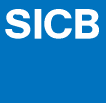 |
|
| Back to SICB '97 Spring Newsletter | |
| SICB Officers | |
Undergraduate Education in the Life Sciences Receives Support
This grant from the Exxon Education Foundation allows CELS to bring professional societies together to achieve greater coherence in the diverse array of topics and approaches in undergraduate biology education.
The Exxon Education Foundation will provide $145,000 over the next two years to the Coalition for Education in the Life Sciences (CELS), a coalition of scientific societies that are committed to improving undergraduate biology education. Funding will support alliances among professional societies both to bring their collective expertise and resources to bear upon critical issues relating to life science undergraduate education in the United States and to better inform them about ongoing national efforts to improve undergraduate science education.
CELS was formed in 1991, when individuals representing 30 life science professional societies and organizations with a collective membership of over 250,000 life scientists and science educators called for the formation of a national life sciences education network. Because the various disciplines in the life sciences have so many professional organizations to represent them, M. Patricia Morse, Past President of ASZ (the forerunner of SICB) and Chair of the Educational Council of ASZ at that time, remembers that establishing a coalition was seen as the only truly effective way to position the life science societies to play an active and sustained role in biology education. Dr. Morse recalled, "Participants at the conference recognized that no single life science society or educational association could hope to make a real impact by itself. Instead, the participants saw the pooling of resources, talents, knowledge and skills as the best chance to create a durable national improvement in life sciences education."
Since its creation, CELS has disseminated information about exemplary programs in life sciences education and fostered dialogues to identify the critical components of biology to which all students should be introduced during their undergraduate years, especially in introductory courses. Susan Cook, SICB Educational Council Chair, asserted that "CELS activities are effectively extending the seminal work, 'Science as a Way of Knowing,' led by John A. Moore in conjunction with our Society a decade ago." Published in the American Zoologist, the "Science as a Way of Knowing" collection is still used by biology professors today as a rich source of content information for teaching.
This grant from the Exxon Education Foundation allows CELS to bring professional societies together to achieve greater coherence in the diverse array of topics and approaches in undergraduate biology education. Jay Labov, who is both a member of SICB's Educational Council and the CELS Steering Committee, is excited about the potential for continuing interactions between CELS and SICB. "One of the daunting challenges facing all of us who teach college students is to devise a program so that our students develop the knowledge, skills and attitudes that scientifically literate citizens need," Dr. Labov commented. "While SICB has made great strides in elevating the teaching of zoology to undergraduates, we are often unaware of successful projects and approaches being developed by the other biological disciplines. I believe that our society has a lot to offer - and learn from - other societies in this coalition." Additional information about the Coalition for Education in the Life Sciences is available at http://www.wisc.edu/cels.
The Society for Integrative and Comparative Biology
1313 Dolley Madison Blvd Suite 402
McLean VA 22101
Phone: 703-790-1745 or 800-955-1236
FAX: 703-790-2672
E-mail: SICB@BurkInc.com